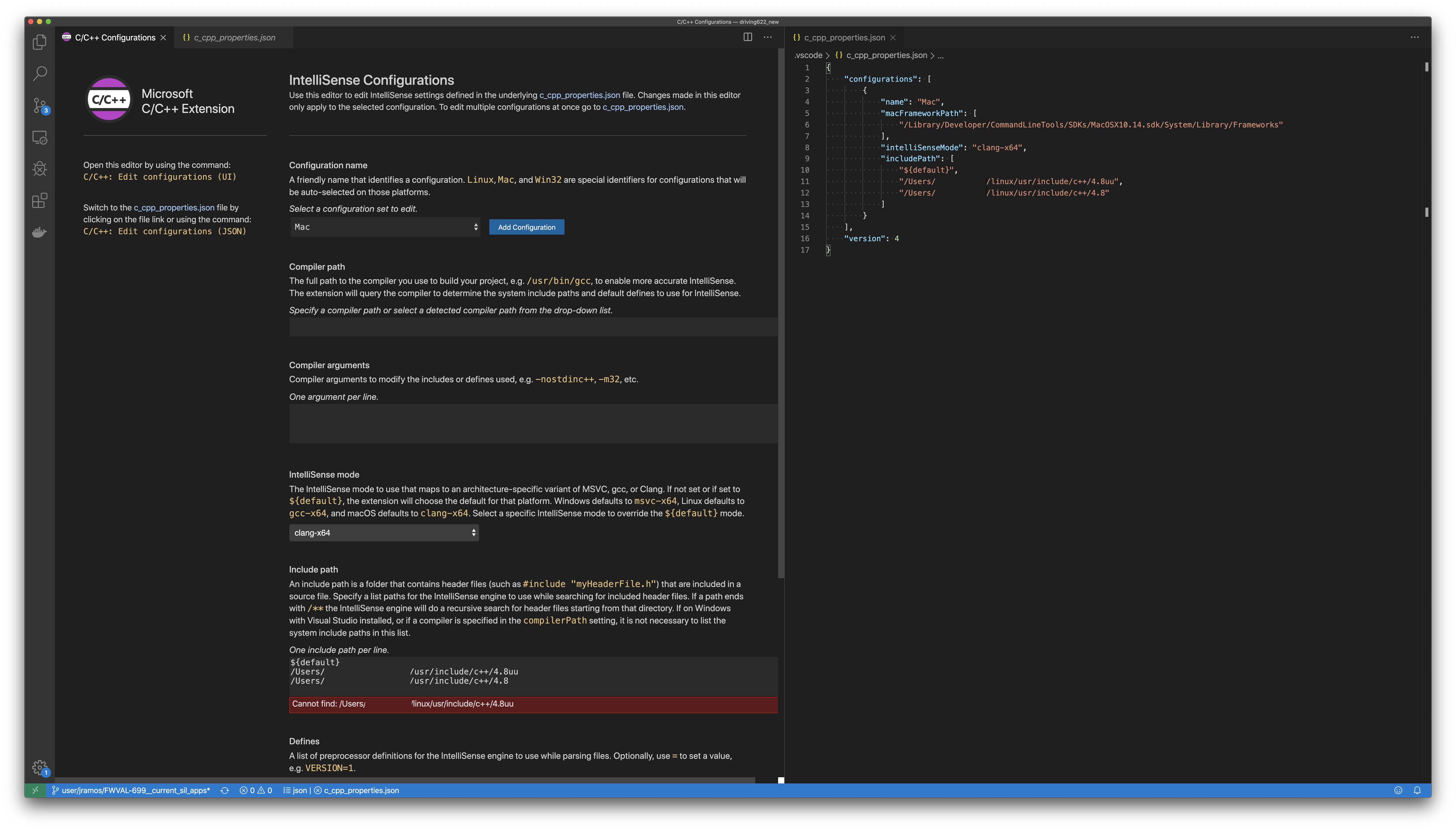
- Visual studio code c++ gcc is not recognized how to#
- Visual studio code c++ gcc is not recognized code#
- Visual studio code c++ gcc is not recognized windows#
CMSIS-SVD File in NXP MCUXpresso SDKįor the launch file the extension does not matter, but I recommend to rename it to. If using the NXP devices, then the SVD files are present in the NXP MCUXpresso SDK, but are harder to find as NXP is not using the standard *.svd extension. They are used for example in the Eclipse EmbSysRegView view and this is a good source to get the files. The “svdFile” entry in the launch.json file is optional, but crucial to embedded system debugging because it describes the device peripheral registers.
Visual studio code c++ gcc is not recognized how to#
In this article I show how to debug an ARM Cortex (M4F, NXP K22FN512) microcontroller with the Microsoft Visual Studio Code.
Visual studio code c++ gcc is not recognized code#
This one is about debugging an ARM Cortex-M Microcontroller with Visual Studio Code: Cortex-M4 (NXP K22FN512) Debugging with Visual Studio Code Outline To see the output, put a break point in the last line "return 0", hit F5 and look at the debug console.The previous parts were about installation, project setup and building. Since it is the case, it enters the conditional block and prints details about the leaks via several functions (see _CrtMemDumpStatistics, _CrtMemDumpAllObjectsSince and _CrtDumpMemoryLeaks - the latter doesn't require snapshots). It does the same thing but by code, so you can integrate it in an automatic build system, the functions _CrtMemCheckpoint take the snapshots and _CrtMemDifference compare the memory states of snapshot and returns true is they are different. OutputDebugString(L"-_CrtDumpMemoryLeaks -") OutputDebugString(L"-_CrtMemDumpAllObjectsSince -") OutputDebugString(L"-_CrtMemDumpStatistics -") If (_CrtMemDifference(&sDiff, &sOld, &sNew)) // if there is a difference _CrtMemCheckpoint(&sNew) //take a snapshot _CrtMemCheckpoint(&sOld) //take a snapshot #define _CRTDBG_MAP_ALLOC //to get more details

Replace the code with the following: #include The key steps of the above procedure are shown in the following image: You can find it by double click the "char" object. In this example there is a memory leak for variable s (stackoverflow_pb). this will open a new "snapshot" tab that permits you to compare this snapshot with the first one (or another one) and to detect memory leaks.Click on the red arrow in the second snapshot (in memory usage tab).

Go to the last line "return 0." ( step over ( F10) several times) and take another snapshot.Then debug the code ( F5), when the breakpoint is hit, click Take snapshot on the Memory Usage summary toolbar.
Visual studio code c++ gcc is not recognized windows#


 0 kommentar(er)
0 kommentar(er)
